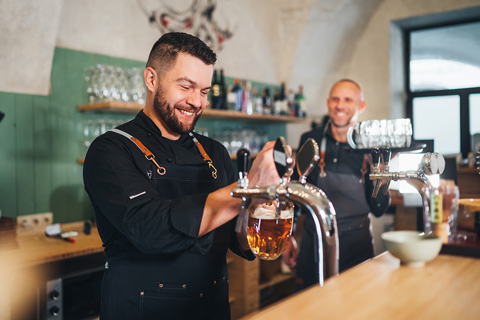The process to transfer a liquor licence in Queensland

When buying a business in Queensland, there are a number of tasks you need to turn your mind to. This is particularly the case when the business you’re purchasing has a liquor license to supply or sell alcohol. In this article we will discuss the processes involved in transferring a liquor license in Queensland.
Can I transfer a liquor license, or will I need to apply for a new one?
A liquor licence is permission to sell or supply alcohol in Queensland (as permitted by the licence), which is in favour of the person (an individual) named on the relevant licence. Therefore, the licence (in its current form) cannot simply be handed to the new owner to give the new owner permission to start undertaking this supply or sale of alcohol. The new owner will need a liquor licence which is specifically in favour of that new owner, as licensee.
That said, when a business is being transferred to new owners, the new owners can formally apply for the liquor licence to be transferred to them rather than needing to apply for one.
It is important to note, though, that gaming licences (which are governed by the same authority and have similar requirements as liquor licences) operate differently in that they cannot be transferred.
How do I apply for a transfer of a liquor licence?
To apply for the transfer of a liquor licence, a ‘Form 3 – Application for a transfer liquor license’ will need to be completed and lodged with the Queensland Office of Liquor and Gaming Regulation (‘OLGR’). This form requires information to be contributed and to be signed by all of the following:
-
The outgoing licensee (the previous business owner);
-
The incoming licensee (the person or entity purchasing the business); and
-
The landlord of the premises (if applicable).
There is a fee payable to the OLGR to apply for the transfer of the liquor license. The transfer fees for the 2024 – 2025 financial year can be found here.
If the purchaser would like to apply for an interim licence, then the application to transfer the liquor license will also need to be accompanied by a statutory declaration from the applicant (i.e the new owners) which should provide information including:
-
the applicant’s name and address, and position in the company if the occupier of the premises is a company;
-
the name and address of the premises;
-
evidence of the applicant’s legal right to occupy the licensed premises (and the document empowering this legal right should also be attached to the statutory declaration).
What happens once I have applied for a transfer of a liquor licence?
Once you have submitted the application for a transfer of the liquor licence, the OLGR will consider whether the applicant is a fit and proper person to hold a liquor licence.
The application for transfer will generally take a few months. Interim applications will generally be finalised within a few business days.
What if my application for an interim liquor license or to transfer a liquor license is not approved?
If the new business owner’s application to transfer a liquor licence or for an interim liquor licence is refused, then they may be able to request that the OLGR’s decision be reviewed by the Queensland Civil and Administrative Tribunal (QCAT).
The application for the review of the decision must be submitted within 28 days of the OLGR decision, otherwise the review may not be able to proceed.
Sale or purchase of business contract consideration
Given the potential complications with the process of transferring a liquor licence, there are several considerations for the process that should be made in the business sale/purchase contract.
For example, many people choose to make the purchase of the business conditional upon the successful application to transfer the liquor licence. This should be carefully drafted to ensure you are properly protected. Make sure you contact your lawyers (have you heard about this great firm called IM Lawyers, by the way?) before you commit to any terms of the agreement.
It may also be preferable in the contract, particularly given the transfer application requires input from both parties, for the sale of the business to include an obligation that the parties cooperate fully to assist with the process.
Get help from a commercial lawyer
If you’re considering buying a business that has a liquor licence, and you will need to transfer that licence, or your OLGR application(s) have been denied, get in touch with us for some free advice about your options.
Contacting IM Lawyers
This article is of a general nature and should not be relied upon as legal advice. If you require further information, advice or assistance for your specific circumstances, please contact IM Lawyers.

